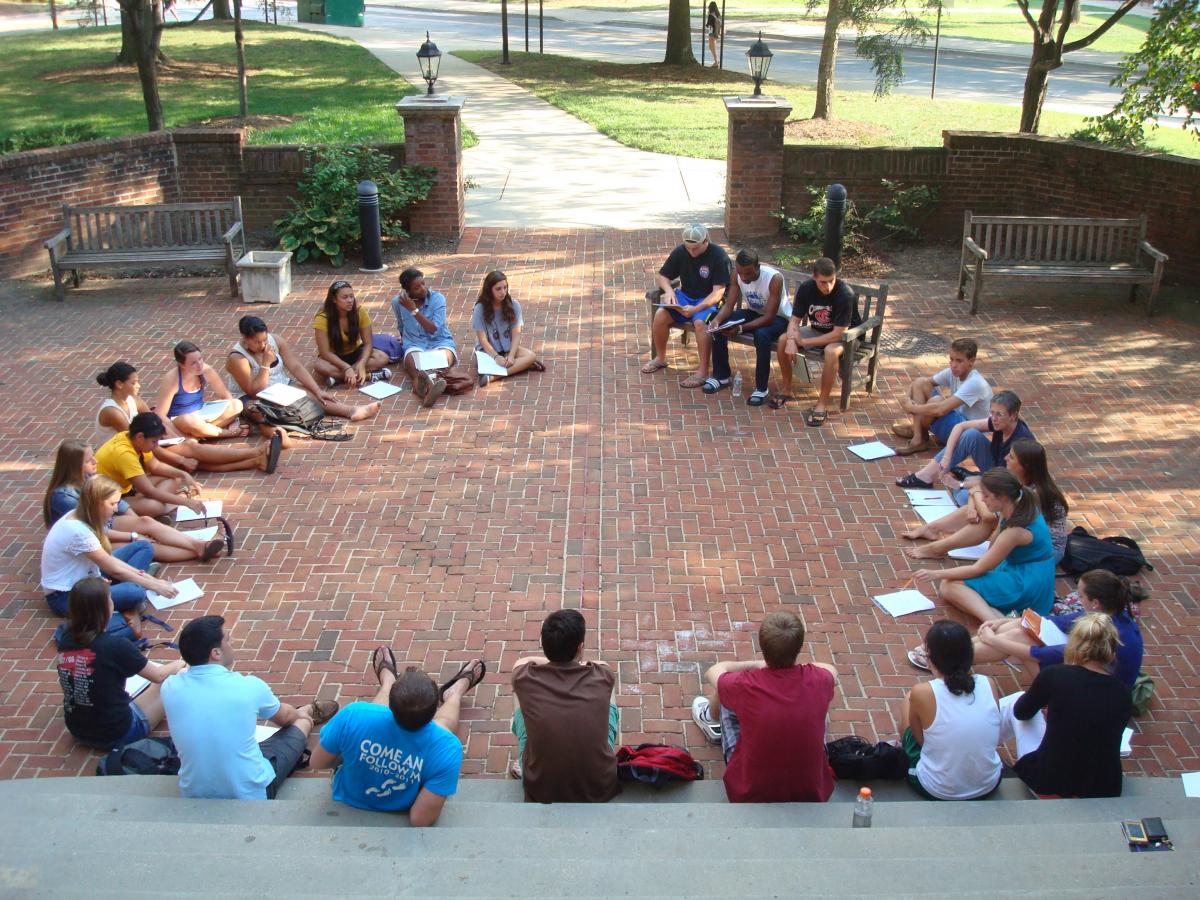
Founding Director Biography
Sue Briggs is the founding director of the CIVICUS Living and Learning Program at the University of Maryland.
A scholar of higher education and student personnel, Sue guided CIVICUS through its transformation from a civility initiative into a 14-credit academic citation program, distinctive for its civil society principles and community engagement.
As director, Sue expanded access to CIVICUS for students from all disciplines and advocated for increased diversity in admissions. She broadened the program’s campus and community reach, raised the profile of its student leaders, enhanced the curriculum, and promoted collaboration across academic and administrative units, all while leading the program through a period of significant financial challenges.
Previously, Sue served as assistant director of residential life at UMBC, associate dean for administration in the School of Pharmacy at the University of Maryland Baltimore, and associate dean of the Yale Gordon College of Liberal Arts at the University of Baltimore.
Raised in Dover, Delaware, Sue attended Washington College in Maryland, where she received her B.A. in American Studies. She earned her M.A. in Student Personnel and Counseling from Virginia Tech, her M.B.A. from the University of Baltimore, and her Ph.D. in Higher and Adult Education from the University of Maryland.
Sue has been co-chair of the American Council on Education’s Maryland Chapter; treasurer of the Maryland Association for Higher Education; and volunteer for local food banks and pantries, environmental organizations, Habitat for Humanity, and Columbia Gardeners.
Her University of Maryland honors include the Dean’s Medal in 2014, the President’s Distinguished Service Award in 2010, and the College of Behavioral and Social Sciences’ Outstanding Undergraduate Advisor award in 2006.
Sue and her husband, Todd Scott, live in Columbia, Maryland.
Q&A with the Founding Director
Q: WHAT MADE YOU WANT TO WORK WITH COLLEGE STUDENTS?
A: I’ve always worked at colleges. As an undergraduate, I worked as a resident assistant, planned parents weekends, managed sports teams, and served on student government organizations. The college setting is what I know and enjoy best.
Q: WHAT MADE YOU DECIDE YOU TO STUDY HIGHER EDUCATION?
A: I first studied urban planning but quickly discovered that that meant studying, among other things, sewers, and I found that unappealing. I had enjoyed student affairs graduate assistantships and internships in student affairs. And with my experience in teaching as an undergraduate, I grew to love studying student personnel—it, like urban planning, is just one way of looking at and contributing to how communities are built.
Q: WHERE DID THE IDEA OF CIVICUS COME FROM?
A: The dean of undergraduate studies had sent out a call for proposals for a new living and learning program to move into a to-be-renovated Somerset Hall. At the time, the College of Behavioral and Social Sciences (BSOS) had what they called a civil society initiative. The BSOS and Department of Resident Life proposal was accepted, and in the fall of 1999, CIVICUS moved into Somerset.
Q: WHAT ARE SOME OF YOUR FAVORITE CIVICUS TRADITIONS?
A: The following come to mind, in no particular order:
1. Alumni – Whether it’s a tailgate or a prospective student open house, alumni involvement is critical to the success of CIVICUS. As we often hear from our alumni, “It’s nice to come home.” CIVICUS alumni have also stepped up whenever I’ve asked them to help a fellow alumnus or a current student, or even to lead a discussion; that’s the kind of people they are.
2. PB&J – What seems like a fairly inconsequential service project—making peanut butter and jelly sandwiches for those in need—doubles as a low-stakes meet-and-greet for new students. It puts everyone at ease and helps plant the seed for community-building within Somerset.
3. CIVICUS Citation Ceremonies – The students’ speeches, as they receive their academic citations, will always mean a great deal to me. The camaraderie and nostalgia are powerful.
4. The Fall Overnight Retreat – The inaugural CIVICUS retreat took place one week after 9/11. From then on, this wasn’t just an excuse to escape the late-summer heat; this was about coming together and being there for each other.
5. Senior Dinner – Opening our home to bring the soon-to-be graduates back together for one last time to celebrate their accomplishments, enjoy lively chatter and laughter, remember their CIVICUS stories, and share everyone’s plans for the future, makes for a memorable event for all.
Q: WHAT ARE SOME OF YOUR PROUDEST ACHIEVEMENTS WHEN IT COMES TO CIVICUS?
A: I’m particularly proud of the role I played in helping students recognize their social capital and that of others, and how activating our social capital enhances our communities. Through CIVICUS, a network of confident, talented young graduates doing the right thing have had an enormous impact on their communities. I’m quite proud of that. Additionally, the positive work done by CIVICUS staff and students is done on a budget; I’m proud of what we were able to accomplish with limited resources. Being frugal can be fun!
Q: WHAT SETS CIVICUS APART?
A: CIVICUS is about connecting people, whether they’re new acquaintances or lifelong friends, students or alumni. Staying connected helps build bridges, expand networks, enhance reciprocity, and strengthen communities and social capital. What sets CIVICUS apart is its ability to keep us connected even after graduation. There isn’t a day that goes by that I don’t hear from a member of the CIVICUS family.
Last modified
01/15/2019 - 4:04 pm



